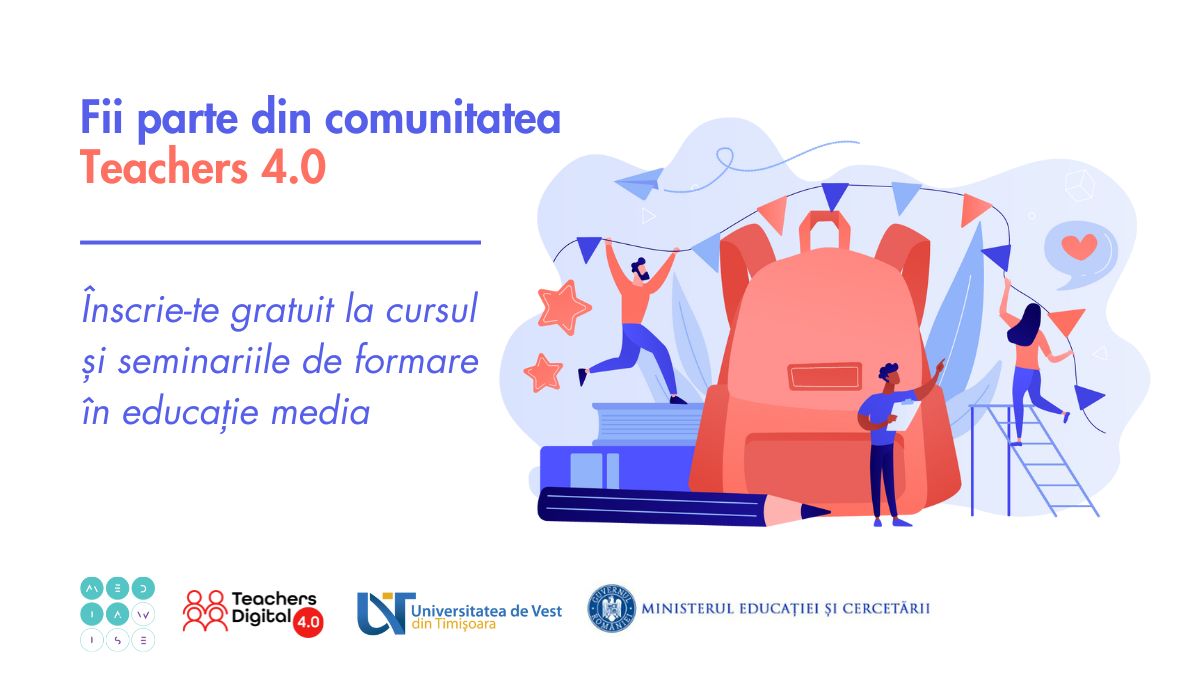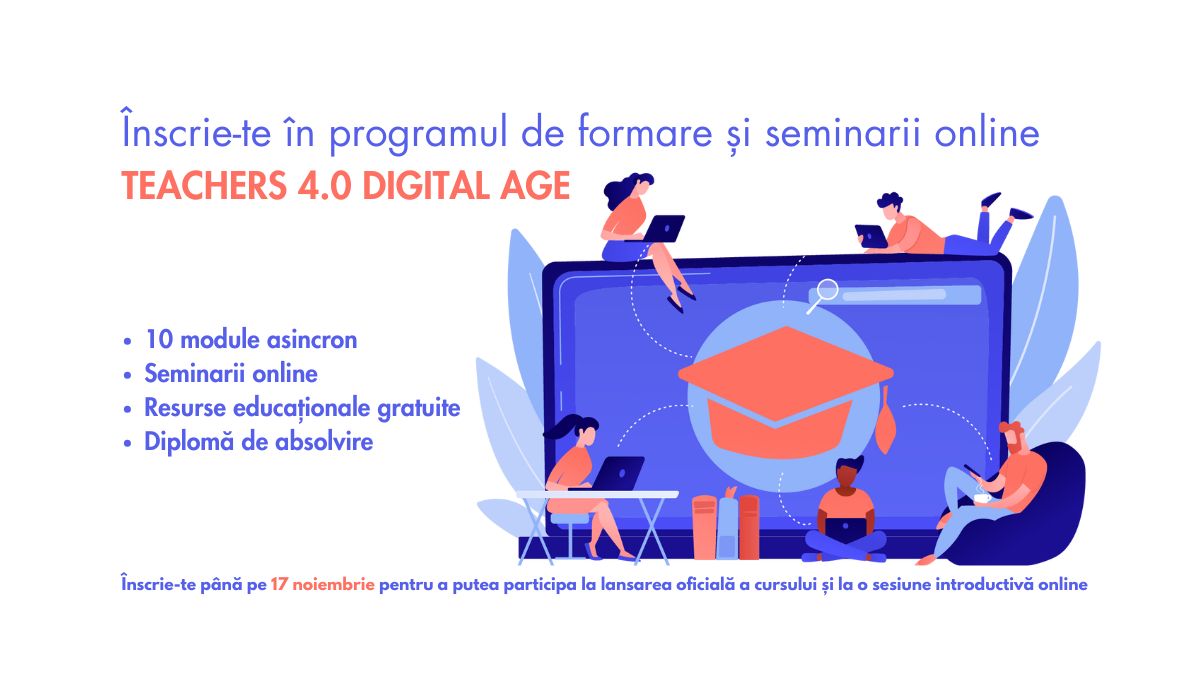Echipa de la MediaSmarts* este de părere că tinerii și copiii canadieni au nevoie de mai puțină supraveghere și mai multe sfaturi și informații care să-i ajute în mediul online (en. mentorship online). MediaSmarts a ajuns la această concluzie după ce a lucrat la nouă rapoarte de cercetare despre practicile online ale copiilor și atitudinea lor față riscurile pe care le întâlnesc în mediul online.
Aceeași concluzie este valabilă și în România și oriunde altundeva în lume. O politică de supraveghere și cenzură nu ar face decât să limiteze accesul copiilor la oportunitățile din mediul online și să le ofere mai puține ocazii să învețe (ajutați de adulți) cum să se descurce în situațiile de risc. Ca în viață, de altfel.

Dar adulții? Știu ei ce să-i învețe pe copii/adolescenți pe această temă? Au timp? Au disponibilitate? Le pasă? Ne-ar trebui o cercetare pe tema asta în România. Lipsa timpului și necunoașterea/ignoranța nu ar trebui să fie totuși motive de limitare a oportunităților oferite de mediul digital și online, doar pentru că ne este teamă pentru copiii noștri, despre ale căror experiențe online, de cele mai multe ori, știm prea puțin.
* o organizație care face multe lucruri bune pentru educație media în Canada și pe care o urmăresc cu atenție
Mai jos, câteva recomandări și observații utile, publicate în ultimul raport din seria de nouă:
From the MediaSmarts news release: „Young Canadians need less surveillance and more mentorship online: national study highlights the important role of adults in kids’ online lives”
The report offers recommendations for a wide range of issues young people encounter online, including sexting, excessive Internet use, cyberbullying and privacy risks. It also includes an analysis of students’ top 50 favourite websites and profiles of students’ online activities organized by grade.
Observations and over-arching recommendations from the report include:
- The way forward is to create an empathetic online culture. Fostering empathy and encouraging students to treat each other with kindness and respect will promote positive online behaviour.
- Promoting positive social norms will help reduce instances of cyberbullying and sexting by showing young people that these activities are not as common as they may think.
- Rules that communicate values and expectations are important for encouraging healthy online behaviours. The research shows that students with rules at home relating to risky online behaviour are less likely to engage in those behaviours. Schools can take a “parental” approach by focussing on rules that establish positive norms and values instead of rules aimed at punishing bad behaviour.
- Zero-tolerance policies don’t work. Encouraging trust and open dialogue is the best approach, particularly when dealing with mean and cruel online behaviour.
- We can create more resilient youth by implementing a child-centered approach to digital literacy where we move from a focus on protection to a focus on empowerment.
- Surveillance can create more risk for youth. Kids understand the safety messages they have been taught, what they now need from adults is involvement and mentorship. Parents and teachers need to work together, as young people look to both for guidance on a variety of Internet issues.
- While kids turn to their parents for help in navigating digital issues, parents are feeling overwhelmed by the pace of technological change and need resources to help them guide their children.
- Parents, teachers and policy makers should become more aware of the highly commercialized nature of kids’ favourite online spaces (just one of the top 50 sites was non-commercial). Kids need media literacy education to be able to recognize when they’re being advertised to and need to learn how to deal with the efforts by many of these sites to harvest their personal data.
This is the final in a series of nine reports examining young Canadians’ activities and behaviours relating to a variety of Internet issues, including: cyberbullying, online relationships, privacy, offensive content, sexting, excessive use and digital literacy in the classroom and home. To download the full series of reports, including infographics and slideshows, visit http://mediasmarts.ca/ycww.Echipa de la MediaSmarts (o organizație care face multe lucruri bune pentru educație media în Canada și pe care o urmăresc cu atenție) este de părere că tinerii și copiii canadieni au nevoie de mai puțină supraveghere și mai multe sfaturi și informații care să-i ajute în mediul online (en. mentorship online). MediaSmarts a ajuns la această concluzie după ce a lucrat la nouă rapoarte de cercetare despre practicile online ale copiilor și atitudinea lor față riscurile pe care le întâlnesc în mediul online.
Aceeași concluzie este valabilă și în România și oriunde altundeva în lume. O politică de supraveghere și cenzură nu ar face decât să limiteze situațiile care să ofere copiiilor posibilitatea să se bucure de oportunitățile mediului online, în timp ce (ajutați de adulți) ar învăța cum să gestioneze situațiile de risc. Ca în viață, de altfel.
Dar adulții? Știu ei ce să-i învețe pe copii/adolescenți? Au timp? Au disponibilitate? Le pasă? Ne-ar trebui o cercetare pe tema asta în România. Lipsa timpului și necunoașterea/ignoranța nu ar trebui să fie totuși motive de limitare a oportunităților oferite de mediul digital și online, doar pentru că ne este teamă pentru copiii noștri, despre ale căror experiențe online, de cele mai multe ori, știm prea puțin.
Mai jos, câteva recomandări și observații utile, publicate în ultimul raport din seria de nouă:
From the MediaSmarts news release: „Young Canadians need less surveillance and more mentorship online: national study highlights the important role of adults in kids’ online lives”
The report offers recommendations for a wide range of issues young people encounter online, including sexting, excessive Internet use, cyberbullying and privacy risks. It also includes an analysis of students’ top 50 favourite websites and profiles of students’ online activities organized by grade.
Observations and over-arching recommendations from the report include:
- The way forward is to create an empathetic online culture. Fostering empathy and encouraging students to treat each other with kindness and respect will promote positive online behaviour.
- Promoting positive social norms will help reduce instances of cyberbullying and sexting by showing young people that these activities are not as common as they may think.
- Rules that communicate values and expectations are important for encouraging healthy online behaviours. The research shows that students with rules at home relating to risky online behaviour are less likely to engage in those behaviours. Schools can take a “parental” approach by focussing on rules that establish positive norms and values instead of rules aimed at punishing bad behaviour.
- Zero-tolerance policies don’t work. Encouraging trust and open dialogue is the best approach, particularly when dealing with mean and cruel online behaviour.
- We can create more resilient youth by implementing a child-centered approach to digital literacy where we move from a focus on protection to a focus on empowerment.
- Surveillance can create more risk for youth. Kids understand the safety messages they have been taught, what they now need from adults is involvement and mentorship. Parents and teachers need to work together, as young people look to both for guidance on a variety of Internet issues.
- While kids turn to their parents for help in navigating digital issues, parents are feeling overwhelmed by the pace of technological change and need resources to help them guide their children.
- Parents, teachers and policy makers should become more aware of the highly commercialized nature of kids’ favourite online spaces (just one of the top 50 sites was non-commercial). Kids need media literacy education to be able to recognize when they’re being advertised to and need to learn how to deal with the efforts by many of these sites to harvest their personal data.
This is the final in a series of nine reports examining young Canadians’ activities and behaviours relating to a variety of Internet issues, including: cyberbullying, online relationships, privacy, offensive content, sexting, excessive use and digital literacy in the classroom and home. To download the full series of reports, including infographics and slideshows, visit http://mediasmarts.ca/ycww.




